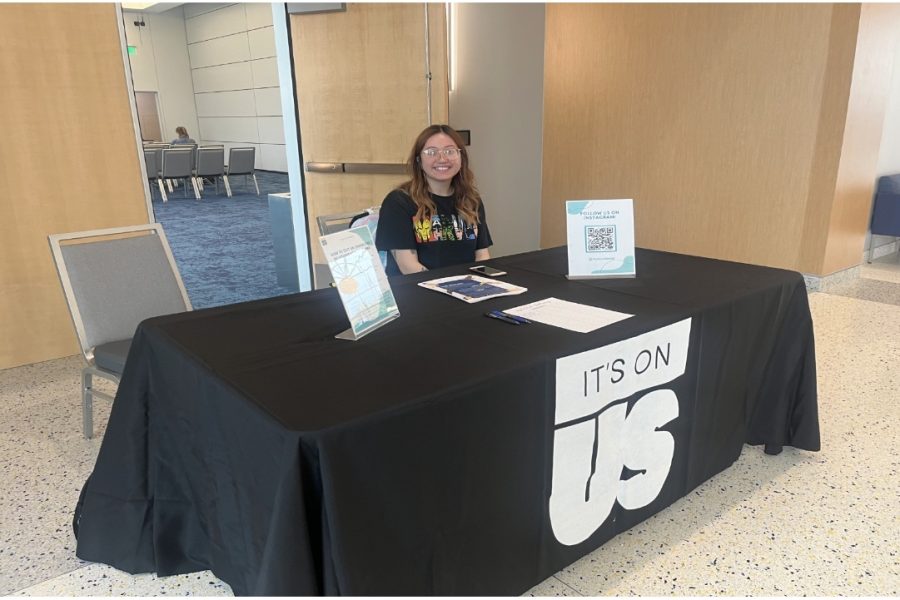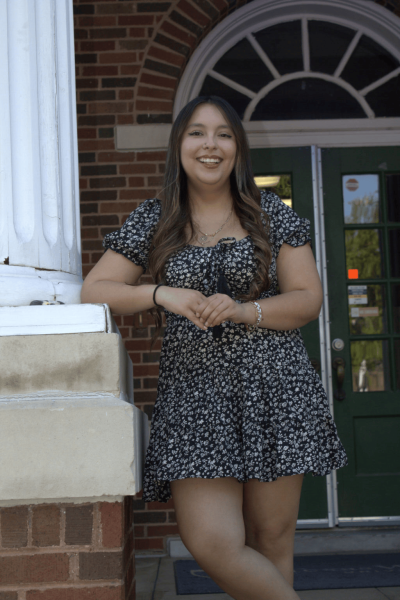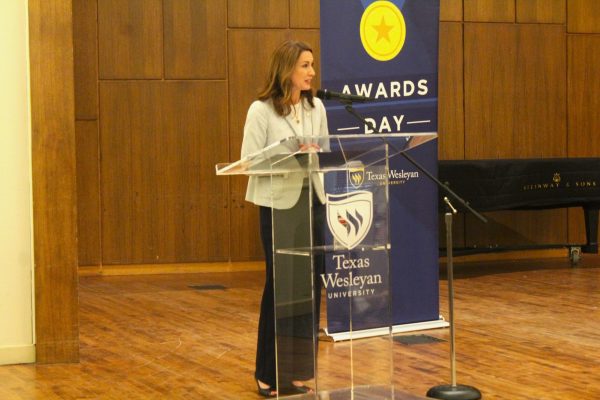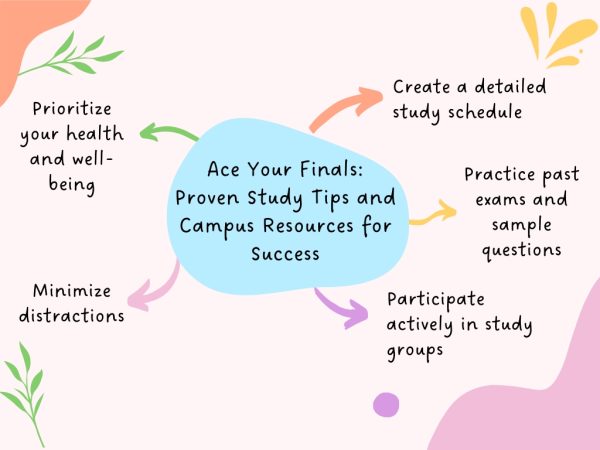It’s On Us hosts sexual assault awareness month workshop
Tina Bui, president of It’s On Us, sets up to welcome students attending the event.
It’s On Us assistant director Adrianna Branin hosted the first event for sexual assault awareness month on how to exit an unhealthy relationship safely and avoid ongoing manipulation at Texas Wesleyan.
Branin said, “This workshop’s purpose was to get students to recognize it and prevent encountering it.”
“When it comes to acknowledging the abuse, it takes someone in an abusive relationship seven times for them to leave that relationship,” Branin said.
Escalation is when abuse gets worse, either suddenly or gradually. Escalation starts as a simple joke, but it gradually escalates to insults, then abusive behavior to physical abuse.
“No one gets into a relationship knowing it’s abusive, it can happen over time, or you just wake up one day and it became abusive,” Branin said.
According to Branin abusive relationships happen in a four-stage cycle.
Stage 1- Tension is when it escalates into arguments, insulting words, and feeling of anger.
Stage 2- Incident occurs when it becomes physical, a punch or a slap.
Stage 3- Reconciliation occurs when an event or action is forgiven.
Stage 4- Honeymoon happens in the beginning of a relationship, everything seems sweet and nice at first.
What’s healthy and what’s not?
Branin shared that a relationship spectrum is defined as all relationships exist from healthy to abusive.
She also shared the following from the sexual assault awareness presentation:
Healthy relationships: You enjoy the relationships here when there is trust, they accept friends and family, or get approval when planning and conversate in a civil manner.
Warning signs: This is where you tell them to stop if they ignore you for days, blackmail you if you refuse to do something, make fun of you in public, or go through your phone.
Protecting yourself: You are in danger here when they blow a fuse, push or slap you, get physical or force you to have sex.
Branin said, “After a breakup, sadness can be heightened for those leaving abusive relationships. If any nice acts are shown after arguments or abusive acts then it is manipulation,” Branin said.
What to say when someone discloses an abusive relationship
According to the presentation, if someone comes to you about an abusive relationship, there are a few things you can say.
- “I believe you.”
- Ask what they need.
- “Thanks for trusting me to tell me this.”
- Make sure to check in and remind them that they are not alone.
More events are planned for the month of April. Tina Bui, a second-year criminal justice major, and the president of the It’s On Us club said, “I encourage others to come to further events.”
Cielo Soto, a second-year political science major and member of the It’s On Us club, said “I like to attend to help raise awareness during these events.”
“No matter what your story is, remember that you are still capable of giving and receiving love,” Branin said. For further questions or advice on peer-to-peer training, email Branin at adrianna.Branin@civicnation.org
Dean of Students and Vice President of Student Affairs Dennis Hall thanked everyone for attending the first event during the month of April. He encourages students to continue to attend these events. “It is not an easy topic to talk about, but I offer my support if students face unhealthy situations, please reach out.”









![Pippin, played by Hunter Heart, leads a musical number in the second act of the musical. [Photo courtesy Kris Ikejiri]](https://therambler.org/wp-content/uploads/2025/04/Pippin-Review-1200x800.jpg)
![Harriet and Warren, played by Trinity Chenault and Trent Cole, embrace in a hug [Photo courtesy Lauren Hunt]](https://therambler.org/wp-content/uploads/2025/02/lettersfromthelibrary_01-1200x800.jpg)
![Samantha Barragan celebrates following victory in a bout. [Photo courtesy Tu Pha]](https://therambler.org/wp-content/uploads/2025/05/20250504_164435000_iOS-834x1200.jpg)





![Hunter Heart (center), the play's lead, rehearses a scene alongside other student actors. [Photo courtesy Jacob Sanchez]](https://therambler.org/wp-content/uploads/2025/04/thumbnail_IMG_8412-1200x816.jpg)
![Student actors rehearse for Pippin, Theatre Wesleyan's upcoming musical. [Photo courtesy Jacob Rivera-Sanchez]](https://therambler.org/wp-content/uploads/2025/04/Pippin-Preview-1200x739.jpg)
![[Photo courtesy Brooklyn Rowe]](https://therambler.org/wp-content/uploads/2025/05/CMYK_Shaiza_4227-1080x1200.jpg)

![Lady Rams softball wraps up weekend against Nelson Lions with a victory [6 – 1]](https://therambler.org/wp-content/uploads/2025/04/Screenshot-2025-04-04-100924-1200x647.png)




















